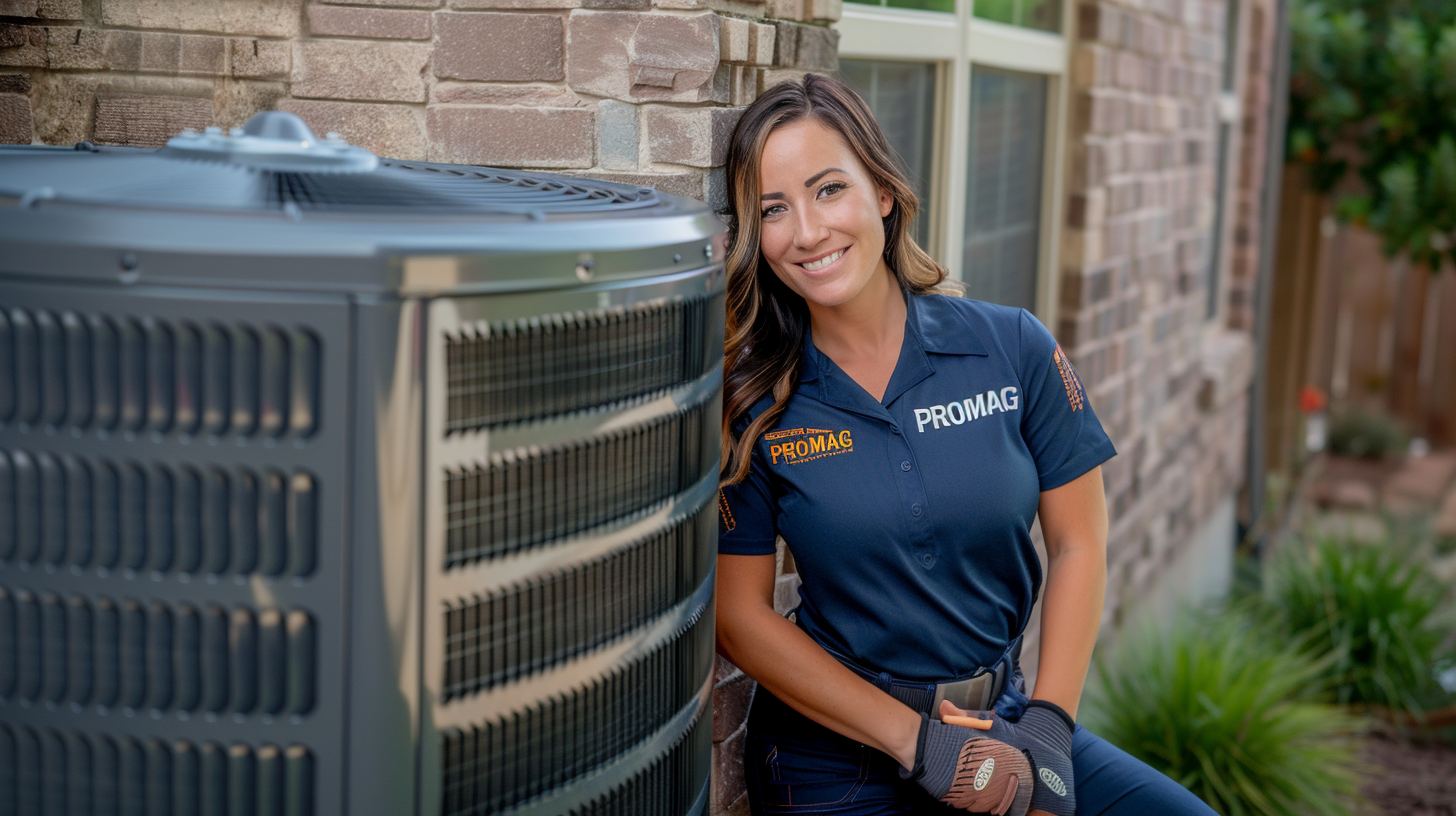Enhance Indoor Air Quality with DMAKS HVAC Expert Help.
Enhance Indoor Air Quality with DMAKS HVAC Expert Help.
Blog Article
Energy-Efficient Heating And Cooling Equipments to Save Money On Energy Expenses
As energy expenses remain to climb, the significance of energy-efficient a/c systems comes to be significantly obvious. These systems not only assure substantial financial savings on utility expenses but likewise add to a much more lasting future by decreasing energy consumption. With different alternatives readily available, including geothermal heatpump and ductless mini-splits, residential property owners encounter a plethora of selections that can improve comfort and air quality. Recognizing the key features and upkeep demands is vital to making best use of these benefits. What factors should be focused on when selecting the appropriate system for your requirements?
Advantages of Energy-Efficient A/c Equipments
Energy-efficient HVAC systems provide countless benefits that prolong beyond mere expense financial savings. By eating less power, these systems contribute to reduce greenhouse gas emissions, assisting to battle climate change and advertise sustainability.
Additionally, energy-efficient HVAC systems frequently offer boosted comfort levels. Most of these systems include advanced innovation that permits far better temperature control and improved air quality (DMAKS HVAC). This results in a healthier interior atmosphere, which is specifically vital for individuals with allergies or respiratory problems
Moreover, spending in energy-efficient HVAC systems can boost building value. As even more customers prioritize power efficiency, homes and structures outfitted with these systems might draw in greater bids in the real estate market.
Kinds Of Energy-Efficient HVAC Options
How can homeowners and businesses pick one of the most appropriate energy-efficient HVAC alternatives for their demands? The market offers a selection of energy-efficient a/c systems, each developed to enhance convenience while lessening energy intake.
One choice is the variable refrigerant circulation (VRF) system, which effectively manages the temperature level in several areas within a building. This system adjusts its refrigerant flow to match the preferred temperature, bring about considerable power cost savings.
An additional prominent choice is geothermal heatpump, which utilize the planet's stable temperature level to heat and cool rooms. By transferring warmth to and from the ground, these systems demonstrate remarkable efficiency, specifically in moderate environments.
In addition, ductless mini-split systems offer an energy-efficient choice for homes lacking ductwork. These systems enable for zone-specific home heating and cooling, lowering energy waste in vacant locations.
Lastly, high-efficiency heating systems and air conditioning unit, with innovative SEER and AFUE ratings, use trustworthy climate control while eating much less energy than typical versions. By evaluating these choices, home owners and businesses can choose a cooling and heating system tailored to their particular demands and power efficiency goals.
Secret Attributes to Consider

Following, examine the kind of compressor utilized in the system. DMAKS HVAC. Variable-speed compressors can adjust their outcome to match the heating or cooling down demand, leading to boosted comfort and power cost savings compared to single-speed versions. Additionally, seek systems furnished with smart thermostats that supply programmable setups and remote gain access to, permitting much better control over energy intake
One more critical attribute is the system's air filtration capability. High-efficiency filters can improve indoor air quality and reduce power intake by ensuring the system operates efficiently. Furthermore, consider the kind of cooling agent made use of; modern-day systems often use eco-friendly refrigerants that have a lower environmental impact.
Lastly, ensure that the system works with zoning innovation, which enables for personalized temperature level control in various areas of your home, enhancing convenience while decreasing energy usage.
Tips for Choosing the Right System


Next, take into consideration power effectiveness ratings, particularly the Seasonal Power Effectiveness Ratio (SEER) for cooling down systems and the Yearly Fuel Usage Efficiency (AFUE) for heating unit. Greater rankings indicate higher efficiency, which can bring about substantial cost savings on utility costs with time.
In addition, examine the type of HVAC system that ideal suits your way of living and budget plan. Options consist of air conditioning, ductless mini-splits, and heatpump, each with its own collection of advantages and downsides.
Don't ignore the significance of correct setup and sizing; an incorrectly sized system can cause inefficiencies and boosted wear. Seek advice from with a professional A/c contractor to acquire experienced recommendations customized to your home's one-of-a-kind requirements. This detailed strategy will make sure that you pick an energy-efficient heating and cooling system that satisfies your needs and budget plan successfully.
Upkeep for Optimal Effectiveness
As soon as the right a/c system remains in area, ongoing maintenance ends up being key to guaranteeing optimum efficiency and durability. A properly maintained system operates better, resulting in lower power usage and reduced energy costs. Regular examinations and tune-ups should be set up at the very least two times a year-- when prior to the cooling season and as soon as before the home heating season.

Home owners must also be attentive about checking their a/c system's performance. Uncommon sounds, changing temperature levels, or enhanced power bills can suggest underlying concerns that require instant focus. By dealing with these worries promptly, property owners can protect check that against costly repair work and prolong the life-span of their systems.
Buying a maintenance strategy with a certified technician not only improves performance yet likewise supplies comfort, knowing that the system is operating at its ideal. DMAKS HVAC. Regular upkeep is for that reason crucial for sustaining energy performance and reducing general functional prices
Conclusion
In final thought, energy-efficient cooling and heating systems provide a viable option for reducing utility costs while boosting comfort and air high quality. By integrating innovative modern technologies and alternatives such as geothermal heatpump and ductless mini-splits, homeowner can achieve significant energy savings and add to environmental sustainability. Careful consideration of system functions and continuous maintenance even more makes sure ideal performance, making energy-efficient systems a prudent investment for both economic and ecological advantages.
Report this page